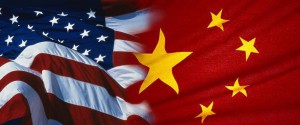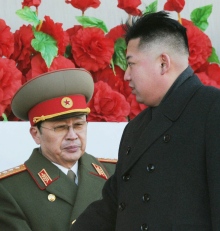This is the fourth article in a seven-part series examining America’s future strategic options toward China. The first looked at confrontation, the second at enhanced balancing, and the third at containment and engagement. This piece considers the strategy of integration.
While America’s longstanding China strategy of containment and engagement hedges on whether a more powerful People’s Republic of China (PRC) will fully reconcile itself to the international system’s liberal rules and institutions by pursuing a two-pronged approach of politico-military pressure and economic interaction to encourage the mainland’s peaceful development, integration takes it for granted that the country has already accepted many international norms. Integrationists assume that America’s ideas of global order will endure long after the relative decline of its own power, thereby minimizing the threat of a rising China attempting to impose a rival system. This perspective builds on the international relations theory of liberal institutionalism, which argues that growing economic interdependence, the increased role of international institutions, the spread of democracy, and the remoteness of great power war in a nuclear age have considerably improved relations between states.
Integrationists believe that China will have insufficient incentive to mount a challenge to, or withdraw from, the U.S.-led order that has contributed so much to its own economic welfare. Whereas those most suspicious of China’s long-term ambitions, such as confrontationists and enhanced balancers, condemn America’s economic engagement with the mainland as a misguided strategy that has inadvertently built up the PRC’s resources, integrationists contend that these benefits deepen China’s stake in preserving a liberal, rules-based regime and rein in any latent aggressive tendencies.
On the grand question of how the United States should respond to a growing China, integration advises that Washington should not attempt to robustly balance against the PRC but should instead recognize Beijing’s increased international stature and grant it more influence in global governance through increased voting shares in bodies like the International Monetary Fund and the World Bank. Such a strategy entails America surrendering some of its existing rights and privileges to give the PRC more decision-making authority and a share in the management of global order, with the payoff that China will become further embedded in a liberal regime largely conceived by the U.S. during the post-war era.
Indeed, integration, despite its accommodative character, is at its core a strategy for constraining China and prolonging America’s global leadership. For overtly coercive strategies, such as confrontation or enhanced balancing, this is to be achieved by maintaining and applying America’s economic and military superiority. For integration, the means are U.S.-inspired norms and its ideological and institutional primacy. As political scientist John Ikenberry, a leading integrationist, writes: “The United States cannot thwart China’s rise, but it can help ensure that China’s power is exercised within the rules and institutions that the United States and its partners have crafted over the last century…The United States’ global position may be weakening, but the international system the United States leads can remain the dominant order of the twenty-first century.”
If pursued with the tenacity recommended by its advocates, integration, in its universalistic assumption that what’s good for the United States is good for others, could provoke China. Though craving the respect typically enjoyed by a great power, the PRC has resisted Western calls for it to assume the duties of one, thinking this to be an ill-concealed scheme to contain its rise by burdening it with responsibilities for managing transnational issues that would divert resources from economic development at home. China has its own ideas of how to manage domestic and international order and may, as some commentators predict, ultimately choose to pursue a separate path to security and prosperity that diverges sharply from the Western model.
The implicit hope of integrationists is that as China assumes increasing responsibility for upholding the liberal order, the habit of compromising with external actors will seep into the country’s internal politics, effecting a gradual transition to democracy. Presumably, a democratic China would be less prone to aggressive behaviour. With this core objective in mind, integration is likely to form at least one component of U.S. strategy toward China over the coming decades. In striving to prod the PRC into adopting American values and practices, it taps into an enduring fascination with the mainland that stretches back to the earliest years of the republic, when U.S. merchants and missionaries operating in China patronizingly viewed their activities as serving that country’s economic and spiritual well-being.
Integration is also in accordance with a moralizing impulse to view the world as divided between forces of good and evil, and the belief among successive generations of American leaders that homeland security and the global spread of U.S. ideals are inextricably linked. As it did during the Cold War conflict with the Soviet Union, ideology will surely help frame U.S. perceptions of, and decisions toward, the PRC. Just as antipathy toward communism made the security challenge posed by the Soviet Union seem more existential, America’s longstanding distaste for authoritarian governments heightens suspicions of China and fosters the wish that it adhere to liberal norms.
Expanding the liberal order has broad appeal to both ends of the American political spectrum, from liberal internationalists to neoconservatives, even if they differ on tactics. It is very conceivable that the U.S. will continue to push for China’s inclusion in such an order no matter what the strategic context, whether it be a defensive, cash-strapped America looking to contain an ascendant PRC by embedding its power in a web of rules and institutions of its own making or a self-assured, economically invigorated actor pressing its advantage by goading the mainland into closer alignment with the prevailing system.
Part V of this series will explore the strategic option of accommodation.




